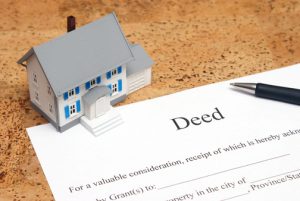Understanding the Potential Challenges with Unrecorded Deeds
 If your parents intend to pass property down to you but have not gone through the step of recording the deed, they could be putting you in a position to handle complex issues if they suddenly pass away. An unrecorded deed is an older estate planning tool that was used by attorneys years ago. However, while you can record an old unrecorded deed, this issue may have more risks than benefits. If you wish to transfer property to your loved ones in the future, sitting down with an estate planning attorney gives you the perspective on what is involved.
If your parents intend to pass property down to you but have not gone through the step of recording the deed, they could be putting you in a position to handle complex issues if they suddenly pass away. An unrecorded deed is an older estate planning tool that was used by attorneys years ago. However, while you can record an old unrecorded deed, this issue may have more risks than benefits. If you wish to transfer property to your loved ones in the future, sitting down with an estate planning attorney gives you the perspective on what is involved.
One important thing to remember with an unrecorded deed is that until the deed is recorded, the title of the property hasn’t changed. This means it is an uncompleted gift for gift tax purposes, and in the years that occur between the signing of the deed and the recording of that deed, the grantor still owns it. This means that they convey title to someone else or even choose to mortgage the property. You might not be able to get clear title to the property in the future if these steps are taken. Furthermore, the presence of an unrecorded deed can also cause estate issues after the grantor passes away.
If the decedent’s name is still holding the property when the person passes away, the property could transfer to someone else either through intestacy or a will. You might have to fight for a title to the property if someone else steps forward and appears to have grounds to obtain it. One of the easiest ways to prevent all of these problems is to schedule a consultation with an estate planning attorney who is thoroughly knowledgeable about and committed to helping you accomplish all of your individual estate planning goals. This can give you peace of mind and clarity about what to expect going forward.
